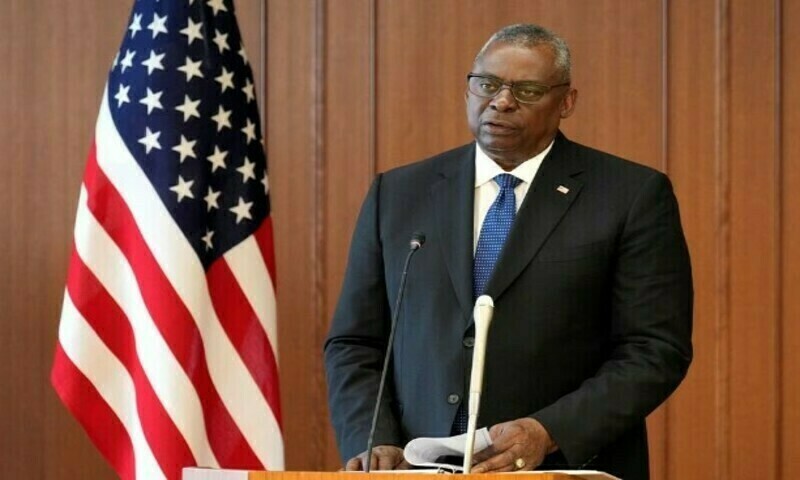SINGAPORE: The US on Saturday issued a fresh call for talks with China, as US Secretary of Defence Lloyd Austin urged Beijing at Asia’s top security summit to engage with Washington as “responsible defence leaders”.
“For responsible defence leaders, the right time to talk is any time,” Mr Austin said in a speech laying out the US vision for leadership in the Indo-Pacific on the second day of the Shangri-La Dialogue in Singapore.
“The right time to talk is every time. And the right time to talk is now. Dialogue is not a reward. It is a necessity.”
Mr Austin’s speech took a three-pronged approach: simultaneously urging China back to the table for defence talks; laying out Washington’s military engagements in the region as deterrence against open conflict; and reassuring Indo-Pacific countries of US support and commitment.
Expressing concern at Beijing’s unwillingness for deeper defence engagement, Mr Austin said he hopes the situation will change soon.
“Great powers must be beacons of transparency and responsibility,” he added. “The US is deeply committed to doing our part. And we are determined to keep this region open, peaceful and prosperous.”
The US has sought to deepen ties with countries in the region stretching from India to Australia, which China has characterised as a policy of encirclement in its backyard.
In a bid to tamp down tensions, US President Joe Biden has called for “guardrails” — including intensifying communication — to keep the two major powers from conflict.
But Beijing rebuffed a US request for a defence meeting on the sidelines of the Shangri-La Dialogue, urging Washington to first drop its sanctions against China’s Defence Minister General Li Shangfu.
However, the two defence ministers shook hands at a dinner at the summit, though the pair “did not have a substantive exchange”, according to the Pentagon.
Chinese officials at the forum said talks with the US would not be possible as long as Washington insists on sanctioning General Li.
Any meeting would have to be conducted on an equal footing, and it is up to the US to create the right conditions for it to take place, they said.
Mr Austin also made specific mention of China’s increasingly aggressive behaviour in the Indo-Pacific, including “an alarming number of risky intercepts of US and allied aircraft flying lawfully in international airspace”.
Vowing to support America’s allies and partners against “coercion and bullying”, he said it was the US’ responsibility to mount a strong deterrence to conflict in the Taiwan Strait.
“We do not seek conflict or confrontation. But we will not flinch in the face of bullying or coercion… This is especially important in the Taiwan Strait,” he said.
“The US remains deeply committed to preserving the status quo there… We will continue to categorically oppose unilateral changes to the status quo from either side.
“Conflict is neither imminent nor inevitable. Deterrence is strong today — and it’s our job to keep it that way.”
Mr Austin added that the US was actively reinforcing its security alliances and partnerships “from the East China Sea to the South China Sea to the Indian Ocean”, running through a list of cooperation with regional nations, including the Philippines, Japan and South Korea.
He spoke as the US Navy conducted a routine transit through the Taiwan Strait, a move that China regularly finds provocative, Bloomberg News reported on Saturday.
But Mr Austin disagreed with a perception among senior Chinese officials that Washington was goading Beijing into using force against Taiwan.
“It is in fact the opposite,” he said in response to the remark made by Dr Bonnie Glaser, a China expert at the German Marshall Fund of the US. “We are doing everything in our power to maintain a free and open Indo-Pacific… With regard to Taiwan, it is the same… and so any kind of disagreement has to be resolved through diplomacy.”
While the US would do whatever it could to maintain the status quo in Taiwan, he said, “having a combat-credible military” would deter any “misguided decision” on the island.—Courtesy Straits Times / ANN
Published in Dawn, June 4th, 2023













































Dear visitor, the comments section is undergoing an overhaul and will return soon.